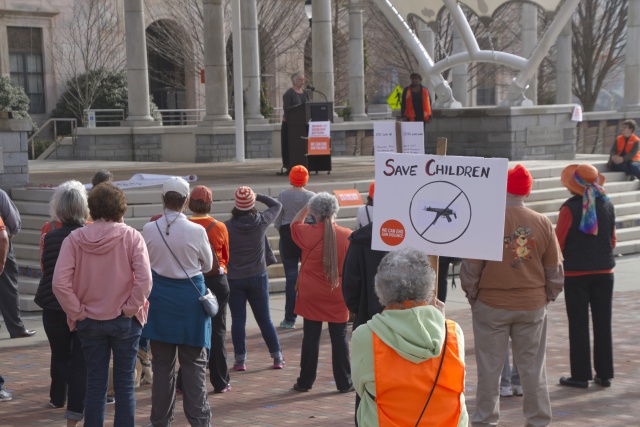Since Columbine, school shootings have become a part of our cultural reality. We have come to see it no longer as a one-off event, but something we have to actively have to prepare our children for. Yet, as we go back and forth over the debate about “gun control” and what that encompasses, the human toll of what gun violence does is often neglected. Not just the death, but the actual trauma to the body.
On the most recent episode of the political podcast “Pantsuit Politics,” they spoke with Dr. Sterling Haring. Dr. Haring made national attention with a tweet he sent out in the wake of the Kentucky School Shooting. He was a doctor at the medical facility the victims were brought and helped treat several victims from the shooting. The shooting left two teenagers dead, Bailey Holt and Preston Cope, and eighteen injured.
Today, I cared for victims of #KentuckySchoolShooting as they arrived via helicopter. They looked like my kids and yours. All I could think about was the #ThoughtsAndPrayers that would be tweeted from politicians who will do nothing to stop the next one. I’ve never felt so sick.
— Sterling Haring (@SterlingHaring) January 24, 2018
In an article that was published in Newsweek, Haring said that what made him sick was realizing that after all this went on the only reaction that would come from it was ‘thoughts and prayers.’
“It hit me, ‘It’s just going to be thoughts and prayers,'” Haring told Newsweek. “It just made me sick, physically ill.” The reason behind this being that the general public is largely unaware of what damage is done by gunfire and the people who have the power to inform people, doctors who handle these traumatic cases, don’t speak.
“Everyone will read the news and know what happened,” he said. “But it seems to me that doctors should be saying something. It seems to me that the people who were there and saw the devastation that came to these kids and their families have an obligation to say something. We absolutely should keep private information private. But we absolutely should share the lessons that we’ve learned.”
So that is what brought him to “Pantsuit Politics.” One of the hosts, Sarah, is herself a survivor of the Heath High School shooting that took place in West Paducah, Kentucky in 1997, 40 miles away from Marshall County High School.
In the podcast, Dr. Haring explains what a bullet does to the body. It is graphic and uncomfortable, but it is the gritty reality that we are often not aware of.
We think that a bullet just goes through the body and everything is fine, because for those who do not live in gun violent areas only see that sort of carnage in films. But the body does not just “bounce back” from a gunshot.
“The physical reality of when children are shot is not that people stand around and cry,” Sarah says reflecting on her own school shooting. “It’s that bodies are torn apart, there is blood and lots of it and people have permanent physical incapacities due to these shootings […] but that’s what America sees people crying and hugging.”
We have decided to scrub actual depictions of violence and blood and carnage when it concerns the lives of innocent people. At the same time, the most watched shows on television are filled with hyper-violence. Yes, one is real and one is fake, but when you are exposed to only one it affects your ideas of harm.
Sarah reflects on the fact that one of the students who died in her incident was talking when she was carried out on a stretcher, but the bullet to a path through multiple internal organs and that is what killed her.
Dr. Haring explains that “the body is packed full” with no “unused space” and if you pierce something there will always be repercussions. The pancreas is filled with enzymes to break down meat so if that is punctured you are spilling that into your body and all your meat-filled internal organs. The heart is a pump and very sensitive pressure changes so if something it punctured you can end up with blood pumping in areas that it should not be. Our spine is bone that surrounds our central nervous system, which connects our brain to all of our movements. Not to mention that each of our intestines is filled with separate enzymes, bacterias, etc that are not meant to be mixing around with each other.
All of that is in the way when a bullet goes through your body. There is no “path.” You either just get lucky or you don’t. Different bullets can also do different types of damage, the soft-point bullet was made to expand upon striking flesh to cause a wound diameter greater than the bullet diameter. So if a victim is hit with this, the damage won’t just be at the point of impact but spreads out throughout the body.
While we play politics about an issue that most of the population agrees needs some sort of regulation, we ignore the long-term impacts physically and psychologically towards survivors of these shootings.
Yesterday a 12-year-old girl was taken into custody for bringing a gun to school and shooting two of her classmates. The suspect says she did not know the gun was real, but it still led to a girl being shot in the wrist and another being shot in the head. They are both going to live, but depending on what happens with their medical treatment the quality of that life is going to be forever changed.
“You don’t suffer some of the wounds these patients suffered and just move on with life. They will have this for the rest of their lives,” he told Newsweek referring to the Kentucky shooting, but it applies to them all.


(via Pantsuit Politics, image: J. Bicking/Shutterstock)
Want more stories like this? Become a subscriber and support the site!
—The Mary Sue has a strict comment policy that forbids, but is not limited to, personal insults toward anyone, hate speech, and trolling.—










Published: Feb 2, 2018 12:43 pm